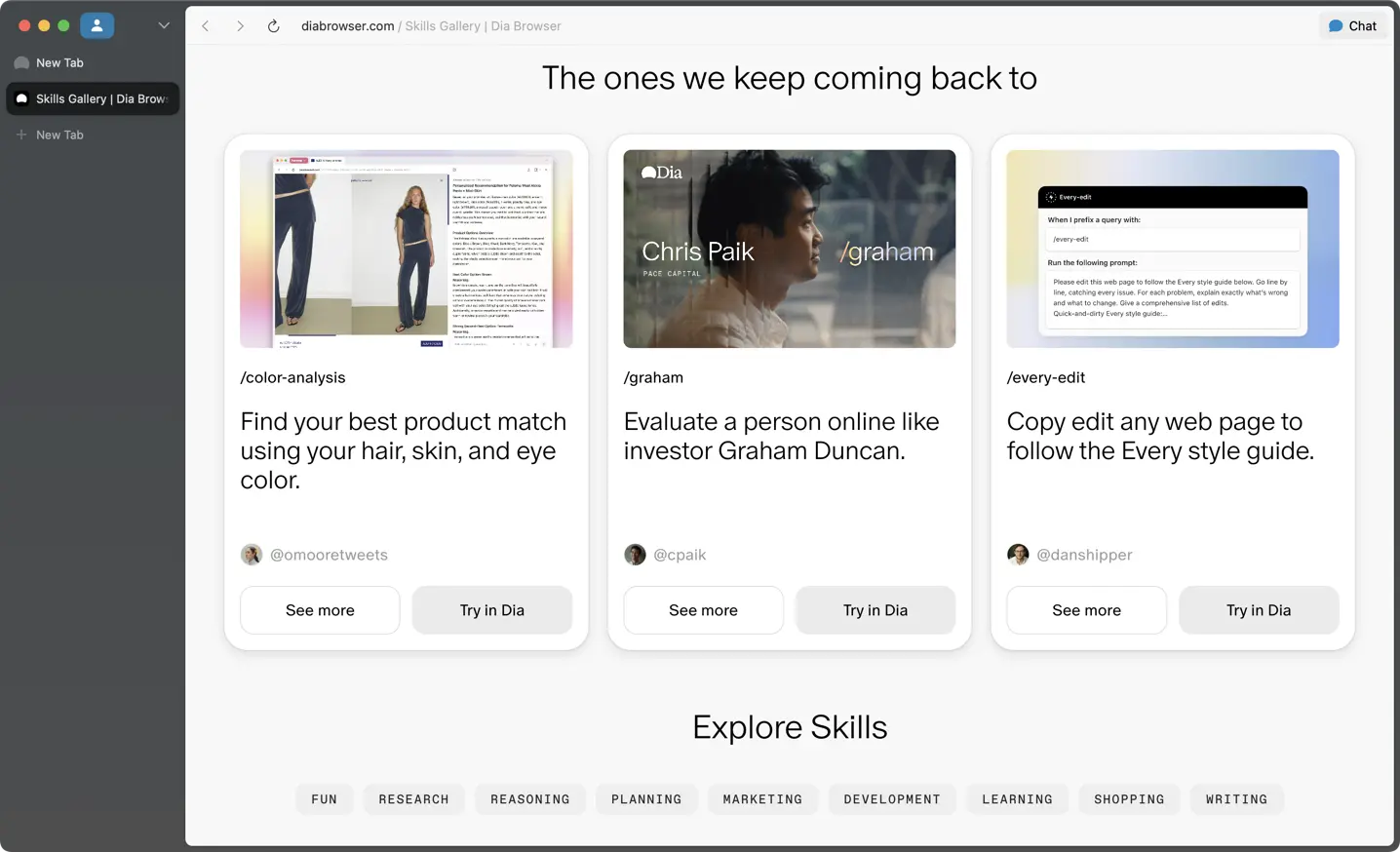
We believe there are better options available in this category, read below to learn what this software does well, and what they could do better. ⤵

.webp)
.webp)
.webp)
.webp)
.webp)


.svg)

Chromium is an open-source web browser project that serves as the foundation for many popular browsers like Arc, Google Chrome, and Microsoft Edge.
Chromium is something you're likely using right now without even realizing it. Are you using Arc Browser, Chrome, Brave, or even Microsoft Edge right now? Okay, then you're using Chromium.
You know those extensions you have in the top-right corner? Yep, those are Chromium extensions (often referred to as "Chrome Extensions"). Little do people know, Google built an open-source foundation to the browser, for which most of the top browsers on the market use as their foundation.
I mean you're not exactly looking at traditional competition here, but Apple does use a competing standard called Webkit. So if you're using Safari on your computer, that's running on Webkit instead of Chromium.
The super interesting part here though is if you're using iOS, any browser you're using is actually built atop Webkit—even Google Chrome. Apple requires Webkit be used on iOS regardless.
Why exactly? Well, Google pays Apple some $20bn per year to be the default search engine in Safari, so holding onto Webkit on iOS and iPad is probably one of their leverage points:
“At-least we still own the foundation of the browser for our products!”
-Apple (probably) 🤷
This genuinely probably doesn't mean much to you, but you're probably using Chromium and you probably don't care.
Just know that it makes for switching between Chromium-based browsers far easier—from transferring bookmarks, to extensions, and everything inbetween.

.webp)
.webp)
.webp)
.webp)
.webp)



AI won’t exist as an app. Or a button. It’ll be an entirely new environment — built on top of a web browser.
Dia Browser is the latest project from The Browser Company (the same team behind Arc Browser), and while it’s an interesting experiment, it feels more like a stripped-down Chrome with an AI sidekick than an actual serious browser contender.
The Browser Company was acquired by Atlassian for $610M, where they will continue building both browsers (focusing on Dia) but with more financial backing to hire more. Although typically acquisitions by the likes of Atlassian have led to stagnation (e.g. Loom). We're cautiously optimistic about this one though since the agentic browser space requires so much financial backing, with Comet by Perplexity investing billions into building out their competitor to Dia.
Dia is for those who are super excited about agentic browsers (think of a baked-in AI chat sidebar, that can co-pilot the browser with you at times).
If you're someone that likes the idea of being able to have pre-built prompts that can be ran that interact with and take into consideration the content on the page you're visiting, then you'll love their "Skills" functionality (this will either immediately click for you as to what's possible, or not):

Sorta. The main competition going on right now is between Perplexity's Comet vs Dia. And while I see some promise behind Dia, I am definitely finding myself only using it for some personal searching. Like going in the depths on researching to buy something. It hasn't been able to replace Arc Browser as my day-to-day work and productivity-focused browser.
It's also incredibly difficult for me to break the habit (or even want to) use ChatGPT less (I use the desktop app, triggering it with CTRL + spacebar), and it seems the team really wants you to embrace their AI chatbot in-place of ChatGPT to get the full benefits (of getting your browser to learn and understand you.
With all of that, if you’re someone who just wants a clean browser with built-in AI to summarize articles or answer questions, speak to your open tabs and YouTube videos to help with research, then sure, Dia might be worth giving a shot. But if you actually care about productivity, speed, and having real control over your setup, Arc still feels lightyears ahead (yes, even in maintenance mode). It's clear that Dia was built for a totally different audience (e.g. my parents or those who haven't taken to embracing AI just yet, then absolutely yes, Dia feels like a solid gateway into this).


.webp)
.webp)
.webp)
.webp)
.webp)

